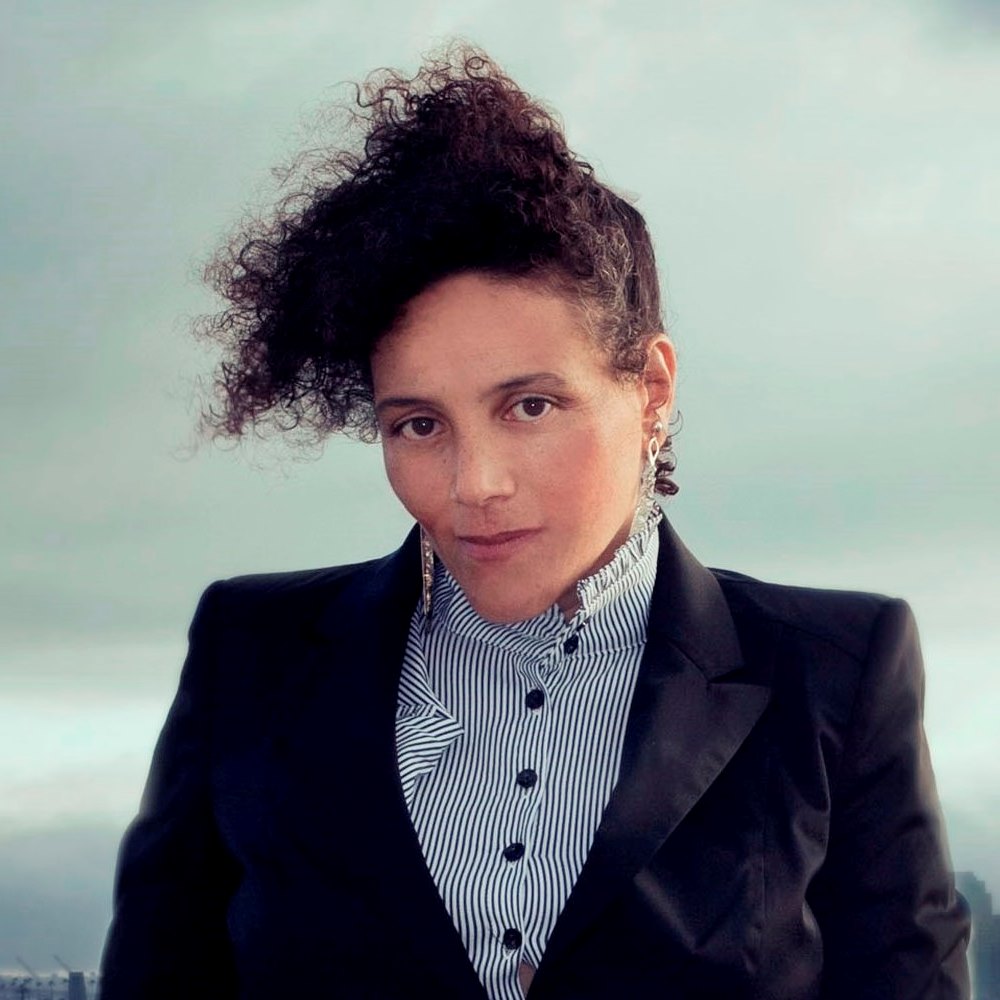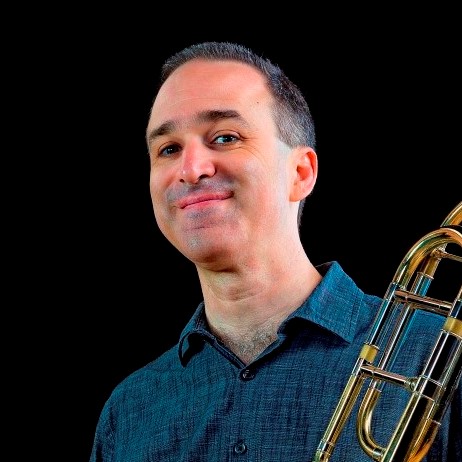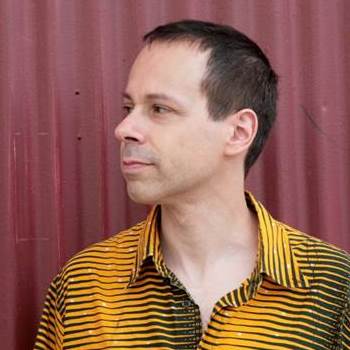Announcing UC Irvine’s New Music PhD Program Integrated Composition, Improvisation, and Technology (ICIT)

ANNOUNCING UC IRVINE’S NEW MUSIC PHD PROGRAM
INTEGRATED COMPOSITION, IMPROVISATION, AND TECHNOLOGY (ICIT)
IRVINE, Calif. (Sept. 28, 2015) – The Music Department in the Claire Trevor School of the Arts at UC Irvine is pleased to announce a unique and innovative PhD program focused on contemporary modes of creative music making. Titled Integrated Composition, Improvisation, and Technology (ICIT), the program is directed by five acclaimed composer-performers whose works spans jazz, classical, non-western and popular forms of music making, blending diverse aesthetic and cultural traditions with cutting-edge technologies. Applications are being accepted for the 2016-17 academic year.
ICIT has attracted national attention as a new paradigm in graduate music study. Most graduate music degrees in the United States are structured around categories that have changed little in the last fifty years. Traditional binaries such as jazz/classical, composer/performer, electronic/acoustic, and Western/non-Western are insufficient for understanding and teaching the vast complexity of contemporary musical practices. Many universities have graduate programs emphasizing one or more of these areas, but without the foundational level of integration central to ICIT.
“In the ICIT PhD program we’re particularly interested in, and we definitely encourage, innovation, both in terms of the students’ own musical work and in terms of how music is studied at the graduate level,” said Christopher Dobrian, Professor of Music in the Department. “Students develop a strong theoretical understanding of music as it’s being made today, which feeds into their own creative efforts. I think that the word integration is the key factor: boundaries are constantly being crossed, and the modern musician must be ‘multilingual’, able to deal fluently in a variety of situations, styles, cultural settings, and technologies. So our PhD program focuses on that very integration; we study the way that the combination of seemingly disparate ideas is shaping the present and the future.”
UC Irvine, located near the coast in Orange County, is a quickly growing campus in one of the nation’s leading research university systems. It is an hour south of Los Angeles, a major art world center with vibrant contemporary music scenes. The Claire Trevor School of the Arts at UCI is also home to excellent graduate programs in Art, Dance, and Drama. In addition to the core ICIT faculty, the Music Department includes many other performers, musicologists, theorists and historians, making for a rich environment in which to develop artistic and critical skills that are essential for the 21st-century musician.
“What makes the ICIT program special is its power to hone talent from diverse spectrums of contemporary music who are unified in their intent -- innovation and hybridization,” stated Nicole Mitchell, Professor of Music in ICIT. “In result, the program creates a rigorously stimulating environment where new discoveries are a normal part of the process."
The core faculty consists of Christopher Dobrian, Professor, joint appointment in Informatics; Nicole Mitchell, Professor; Kojiro Umezaki, Associate Professor; Lukas Ligeti, Assistant Professor; and Michael Dessen, Chair of the Department of Music, Associate Professor, Robert and Marjorie Rawlins Chair of Music.
“We’re really fortunate to have hired an exceptional group of faculty in this program, distinctive and excellent musicians whose own work exemplifies the integration to which I referred,” said Mitchell. “The wonderful collegiality of these faculty, and the excitement generated by exploring new music in new ways, creates a remarkably supportive atmosphere, one in which experimentation thrives.”
Applicants who do not already possess a master's degree in music will enter the MA program with the intention of continuing in the PhD. The MA program is generally completed in two years; the PhD program normally requires an additional two to three years beyond the MA. Students receive tuition waivers and stipends in return for working as teaching assistants. Applicants should possess an undergraduate degree in music or an equivalent level of training, and should demonstrate potential for creative and innovative work at the doctoral level. For more details on the program, the faculty, current students, and how to apply, please visit the ICIT website at music.arts.uci.edu/icit.
RESEARCH SPECIALIZATIONS OF THE ICIT FACULTY:
- Intercultural collaboration and composition
- Contemporary forms of jazz, improvised music, and creative music
- Interactive computer music (intelligent systems for composition and improvisation)
- Musical applications for mobile devices and new technologies
- Telematic music (live, co-located performance via Internet)
- Live sampling and processing
KEY FACULTY:
 Christopher Dobrian is director of the Gassmann Electronic Music Studio and the Realtime Experimental Audio Laboratory (REALab), and is producer/director of the Gassmann Electronic Music Series. He composes both instrumental and computer music, and conducts research focusing on the development of artificially intelligent interactive computer systems for the cognition, composition, and improvisation of music. He has published numerous technical and theoretical articles on interactive computer music, and he is the author of the original reference documentation and tutorials for the Max, MSP, and Jitter programming environments by Cycling '74. He holds a PhD in Composition from the University of California, San Diego, where he studied composition with Joji Yuasa, Robert Erickson, Morton Feldman, and Bernard Rands, computer music with F. Richard Moore and George Lewis, and classical guitar with the Spanish masters Celin and Pepe Romero. Dobrian has been an invited Fulbright specialist at the Korean National University of Arts, the University of Paris-Sorbonne, and McGill University in Montreal, and has been a guest professor at Yonsei University, Taiwan National Normal University, and the National University of Quilmes in Argentina. His computer music compositions include Microepiphanies: A Digital Opera, a completely computer-controlled performance; Invisible Walls for dancers, motion tracking system, and computer-controlled synthesizer; Distance Duo for two computer pianos in remote locations connected via Internet; Mannam for Korean flute (daegeum) and interactive computer system; JazzBot for piano and musical robots; Tautology for Two for trumpet, trombone, and computer, with the instrumentalists located in different cities; and Gestural for digital piano and interactive computer system responding to the musical gestures of an improviser. music.arts.uci.edu/dobrian
Christopher Dobrian is director of the Gassmann Electronic Music Studio and the Realtime Experimental Audio Laboratory (REALab), and is producer/director of the Gassmann Electronic Music Series. He composes both instrumental and computer music, and conducts research focusing on the development of artificially intelligent interactive computer systems for the cognition, composition, and improvisation of music. He has published numerous technical and theoretical articles on interactive computer music, and he is the author of the original reference documentation and tutorials for the Max, MSP, and Jitter programming environments by Cycling '74. He holds a PhD in Composition from the University of California, San Diego, where he studied composition with Joji Yuasa, Robert Erickson, Morton Feldman, and Bernard Rands, computer music with F. Richard Moore and George Lewis, and classical guitar with the Spanish masters Celin and Pepe Romero. Dobrian has been an invited Fulbright specialist at the Korean National University of Arts, the University of Paris-Sorbonne, and McGill University in Montreal, and has been a guest professor at Yonsei University, Taiwan National Normal University, and the National University of Quilmes in Argentina. His computer music compositions include Microepiphanies: A Digital Opera, a completely computer-controlled performance; Invisible Walls for dancers, motion tracking system, and computer-controlled synthesizer; Distance Duo for two computer pianos in remote locations connected via Internet; Mannam for Korean flute (daegeum) and interactive computer system; JazzBot for piano and musical robots; Tautology for Two for trumpet, trombone, and computer, with the instrumentalists located in different cities; and Gestural for digital piano and interactive computer system responding to the musical gestures of an improviser. music.arts.uci.edu/dobrian
 Nicole Mitchell is a creative flutist, composer, bandleader and educator. Having emerged from the Chicago music scene of the 90’s, Mitchell has been a member of the Association for the Advancement of Creative Musicians (AACM) since 1995, having served as the former first woman president. Initially inspired into the world of improvisation by studies with Jimmy Cheatham, Donald Byrd and James Newton, Mitchell has performed and recorded with creative music luminaries including Hamid Drake, Fred Anderson, George Lewis, Roscoe Mitchell, Anthony Braxton and Ed Wilkerson, all of whom have been mentors towards her artistic development. As the founder of critically acclaimed Black Earth Ensemble, Black Earth Strings, Ice Crystal and Sonic Projections, Mitchell’s ongoing mission is to “celebrate the power of endless possibility by creating visionary worlds through music.” A recipient of the Herb Alpert Award (2011) and the Doris Duke Performing Artist Award (2012), Mitchell composes for contemporary ensembles of varied instrumentation and size (from solo to orchestra and big band) while incorporating improvisation and a wide aesthetic expression. Mitchell has been commissioned by the Chicago Museum of Contemporary Art (2015, 2010), Spektral String Quartet (2014), ICE (2012), Chicago Sinfonietta (2012), Chicago Composers Orchestra (2011), Chicago Jazz Festival (2010) and Chamber Music America (2007). Having been awarded “Top Jazz Flutist” by Downbeat Magazine (2010-2015) and Jazz Journalists Association (2010-2015), Mitchell is a graduate of Chicago State University (BA) and Northern Illinois University (MM). Her research interests include multi-arts performance (live music with video, choreography and/or text), intercultural collaboration and African American experimental music. nicolemitchell.com
Nicole Mitchell is a creative flutist, composer, bandleader and educator. Having emerged from the Chicago music scene of the 90’s, Mitchell has been a member of the Association for the Advancement of Creative Musicians (AACM) since 1995, having served as the former first woman president. Initially inspired into the world of improvisation by studies with Jimmy Cheatham, Donald Byrd and James Newton, Mitchell has performed and recorded with creative music luminaries including Hamid Drake, Fred Anderson, George Lewis, Roscoe Mitchell, Anthony Braxton and Ed Wilkerson, all of whom have been mentors towards her artistic development. As the founder of critically acclaimed Black Earth Ensemble, Black Earth Strings, Ice Crystal and Sonic Projections, Mitchell’s ongoing mission is to “celebrate the power of endless possibility by creating visionary worlds through music.” A recipient of the Herb Alpert Award (2011) and the Doris Duke Performing Artist Award (2012), Mitchell composes for contemporary ensembles of varied instrumentation and size (from solo to orchestra and big band) while incorporating improvisation and a wide aesthetic expression. Mitchell has been commissioned by the Chicago Museum of Contemporary Art (2015, 2010), Spektral String Quartet (2014), ICE (2012), Chicago Sinfonietta (2012), Chicago Composers Orchestra (2011), Chicago Jazz Festival (2010) and Chamber Music America (2007). Having been awarded “Top Jazz Flutist” by Downbeat Magazine (2010-2015) and Jazz Journalists Association (2010-2015), Mitchell is a graduate of Chicago State University (BA) and Northern Illinois University (MM). Her research interests include multi-arts performance (live music with video, choreography and/or text), intercultural collaboration and African American experimental music. nicolemitchell.com
 Kojiro Umezaki is a performer of the shakuhachi, a composer of electro-acoustic works, and a specialist in developing music-technology systems for live performance. Since 2001, he has been a regular performer with the Silk Road Ensemble. In addition to his recent solo release (Cycles) (In A Circle, 2014), notable recordings include Brooklyn Rider’s Dominant Curve (In A Circle, 2010); The Silk Road Ensemble’s Beyond the Horizon (Sony BMG, 2005), New Impossibilities (Sony BMG, 2007), Off the Map (World Village, 2009-Grammy Award nominee), and A Playlist Without Borders (Sony Masterworks, 2013); Yo-Yo Ma’s Appassionato (Sony BMG, 2007) and Songs of Joy and Peace (Sony BMG, 2008-Grammy Award winner); Huun-Huur Tu’s Ancestors Call (World Village 2010); Beat in Fractions’ Beat Infraction (Healthy Boys, 2007); and The Silk Road: A Musical Caravan (Smithsonian Folkways, 2002). In addition to creative research in contemporary intercultural practices in music associated with the historic Silk Road regions, he is a developer of portable and mobile interactive music systems and a creator of mixed-media collaborative works with interests in forms of hybrid music at the intersection of tradition and technology. Since 2012, he has been involved with Turnaround Arts, a White House initiative under the President’s Committee on the Arts and the Humanities. Born and raised in Tokyo, he holds a degree in Electro-acoustic Music from Dartmouth College. kojiroumezaki.com
Kojiro Umezaki is a performer of the shakuhachi, a composer of electro-acoustic works, and a specialist in developing music-technology systems for live performance. Since 2001, he has been a regular performer with the Silk Road Ensemble. In addition to his recent solo release (Cycles) (In A Circle, 2014), notable recordings include Brooklyn Rider’s Dominant Curve (In A Circle, 2010); The Silk Road Ensemble’s Beyond the Horizon (Sony BMG, 2005), New Impossibilities (Sony BMG, 2007), Off the Map (World Village, 2009-Grammy Award nominee), and A Playlist Without Borders (Sony Masterworks, 2013); Yo-Yo Ma’s Appassionato (Sony BMG, 2007) and Songs of Joy and Peace (Sony BMG, 2008-Grammy Award winner); Huun-Huur Tu’s Ancestors Call (World Village 2010); Beat in Fractions’ Beat Infraction (Healthy Boys, 2007); and The Silk Road: A Musical Caravan (Smithsonian Folkways, 2002). In addition to creative research in contemporary intercultural practices in music associated with the historic Silk Road regions, he is a developer of portable and mobile interactive music systems and a creator of mixed-media collaborative works with interests in forms of hybrid music at the intersection of tradition and technology. Since 2012, he has been involved with Turnaround Arts, a White House initiative under the President’s Committee on the Arts and the Humanities. Born and raised in Tokyo, he holds a degree in Electro-acoustic Music from Dartmouth College. kojiroumezaki.com
 Michael Dessen is a composer and trombonist who creates music for improvisers and explores the artistic potentials of technologies including live electronics, telepresence and networked scores. Working with his own electro-acoustic trio and many collective projects, Dessen’s composing includes networked “scorestreams” that are displayed dynamically on screens for performers to interpret. As an improviser, he collaborates with diverse bands in addition to performing solo on digibone, an animistic world of slide trombone and live electronics. Since 2007, Dessen has also been involved in numerous telematic concerts that link performers in distant locations via high-definition networking technologies. He has composed new works specifically for the telematic stage, and has co-directed large-scale telematic projects featuring renowned composer-improvisers performing together across continents. Dessen’s music has been supported by commissions from organizations including Chamber Music America and the Fromm Foundation. He has published writings on music, focusing especially on the role of African American traditions within late-twentieth century experimental music worlds, and his teachers include Yusef Lateef, George Lewis, and Anthony Davis. He is a graduate of the Eastman School of Music (BM), the University of Massachusetts, Amherst (MM), and the University of California, San Diego (PhD). mdessen.com
Michael Dessen is a composer and trombonist who creates music for improvisers and explores the artistic potentials of technologies including live electronics, telepresence and networked scores. Working with his own electro-acoustic trio and many collective projects, Dessen’s composing includes networked “scorestreams” that are displayed dynamically on screens for performers to interpret. As an improviser, he collaborates with diverse bands in addition to performing solo on digibone, an animistic world of slide trombone and live electronics. Since 2007, Dessen has also been involved in numerous telematic concerts that link performers in distant locations via high-definition networking technologies. He has composed new works specifically for the telematic stage, and has co-directed large-scale telematic projects featuring renowned composer-improvisers performing together across continents. Dessen’s music has been supported by commissions from organizations including Chamber Music America and the Fromm Foundation. He has published writings on music, focusing especially on the role of African American traditions within late-twentieth century experimental music worlds, and his teachers include Yusef Lateef, George Lewis, and Anthony Davis. He is a graduate of the Eastman School of Music (BM), the University of Massachusetts, Amherst (MM), and the University of California, San Diego (PhD). mdessen.com
 Lukas Ligeti: Drawing upon influences including downtown New York experimentalism, contemporary classical music, jazz, and traditional music from Africa, Lukas Ligeti has developed a unique voice as a composer and improviser. With performances at major venues and festivals worldwide, his compositions have been commissioned by Bang on a Can, Kronos Quartet, Ensemble Modern, the American Composers Orchestra, Colin Currie and Håkan Hardenberger, the Vienna Festival, the Goethe Institute, and many others, and he has collaborated with choreographers including Karole Armitage and Panaibra Gabriel Canda. As a drummer, he has worked with John Zorn, Marilyn Crispell, Gary Lucas, John Tchicai, Henry Kaiser, Miya Masaoka, Michael Manring, George Lewis, Tarek Atoui, DJ Spooky, Elliott Sharp, Susie Ibarra, Thollem McDonas, etc., and leads or co-leads several bands such as Hypercolor and Notebook. He has given solo electronic percussion concerts on four continents. Active in experimental intercultural collaboration in Africa for more than 20 years, he co-founded the ensemble Beta Foly in Côte d'Ivoire and today co-leads Burkina Electric, the first electronica band from Burkina Faso. Lukas studied composition at the University of Music and Performing Arts in Vienna, Austria, his city of birth. He was a visiting scholar at Stanford University and subsequently lived in New York City from 1998 until 2015. He is completing a PhD at the University of the Witwatersrand in Johannesburg, South Africa, where he was previously composer-in-residence, and has also taught at the University of Ghana. Among other prizes, he received, in 2010, the CalArts Alpert Award in Music. www.lukasligeti.com
Lukas Ligeti: Drawing upon influences including downtown New York experimentalism, contemporary classical music, jazz, and traditional music from Africa, Lukas Ligeti has developed a unique voice as a composer and improviser. With performances at major venues and festivals worldwide, his compositions have been commissioned by Bang on a Can, Kronos Quartet, Ensemble Modern, the American Composers Orchestra, Colin Currie and Håkan Hardenberger, the Vienna Festival, the Goethe Institute, and many others, and he has collaborated with choreographers including Karole Armitage and Panaibra Gabriel Canda. As a drummer, he has worked with John Zorn, Marilyn Crispell, Gary Lucas, John Tchicai, Henry Kaiser, Miya Masaoka, Michael Manring, George Lewis, Tarek Atoui, DJ Spooky, Elliott Sharp, Susie Ibarra, Thollem McDonas, etc., and leads or co-leads several bands such as Hypercolor and Notebook. He has given solo electronic percussion concerts on four continents. Active in experimental intercultural collaboration in Africa for more than 20 years, he co-founded the ensemble Beta Foly in Côte d'Ivoire and today co-leads Burkina Electric, the first electronica band from Burkina Faso. Lukas studied composition at the University of Music and Performing Arts in Vienna, Austria, his city of birth. He was a visiting scholar at Stanford University and subsequently lived in New York City from 1998 until 2015. He is completing a PhD at the University of the Witwatersrand in Johannesburg, South Africa, where he was previously composer-in-residence, and has also taught at the University of Ghana. Among other prizes, he received, in 2010, the CalArts Alpert Award in Music. www.lukasligeti.com
About UCI’s Claire Trevor School of the Arts
As UCI’s creative laboratory, the Claire Trevor School of the Arts explores and presents the arts as the essence of human experience and expression, through art forms ranging from the most traditional to the radically new. The international faculty works across a wide variety of disciplines, partnering with others across the campus. National-ranked programs in art, dance, drama, and music begin with training but end in original invention. Students come to UCI to learn to be citizen-artists, to sharpen their skills and talents, and to become the molders and leaders of world culture. For more information, please visit www.arts.uci.edu.
Visit the ICIT website: music.arts.uci.edu/icit/
